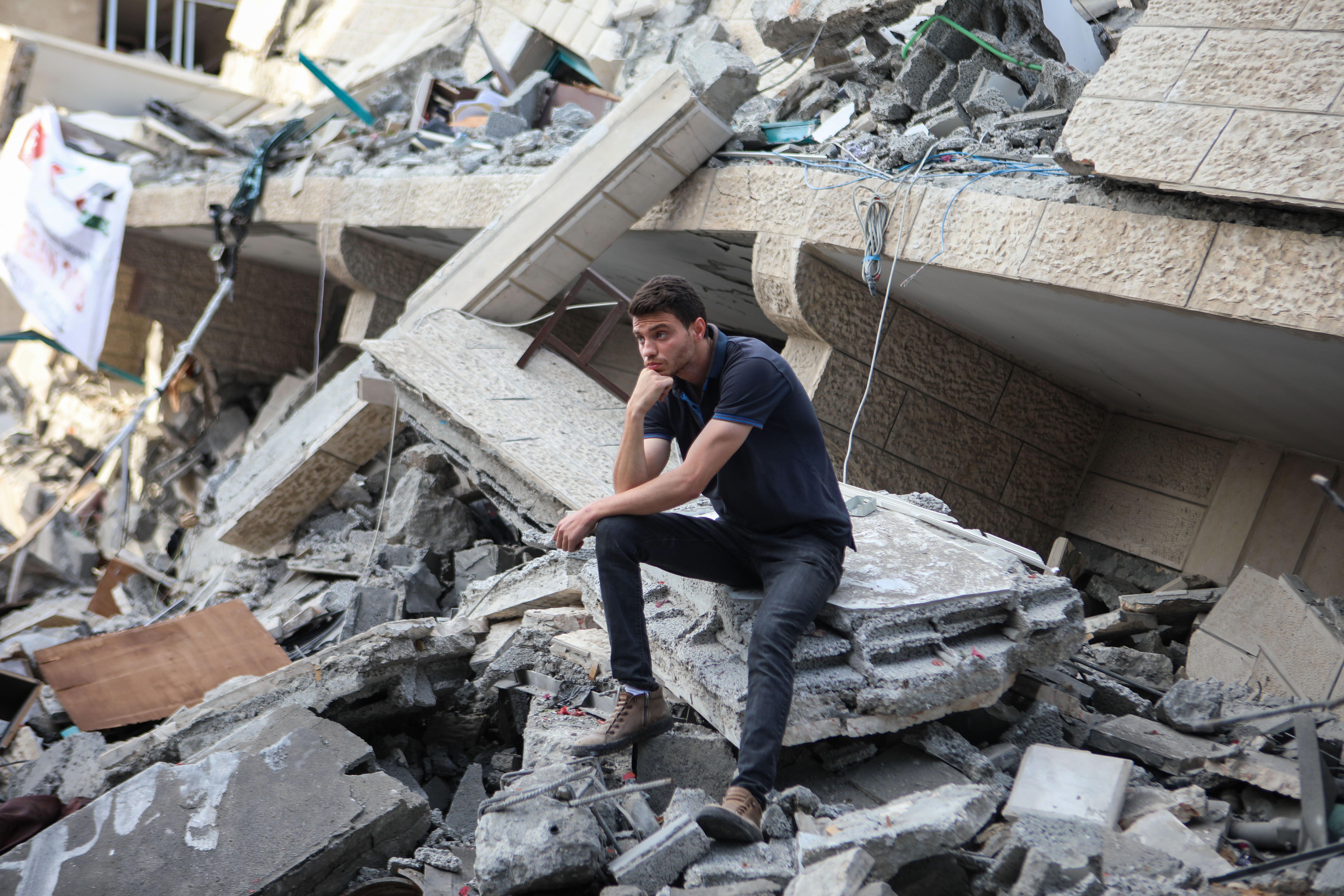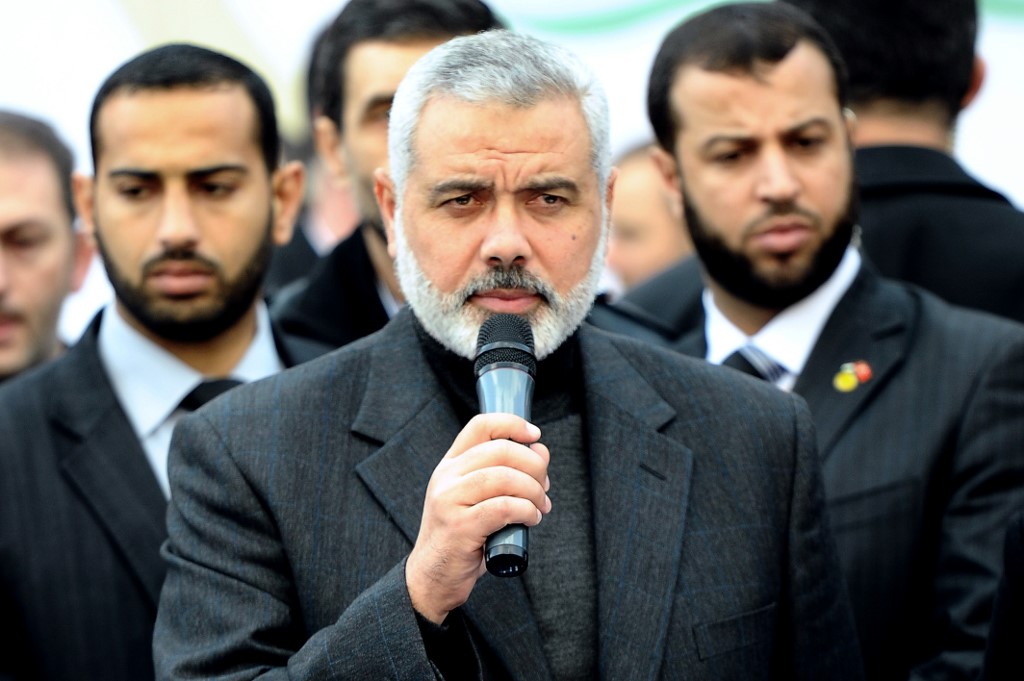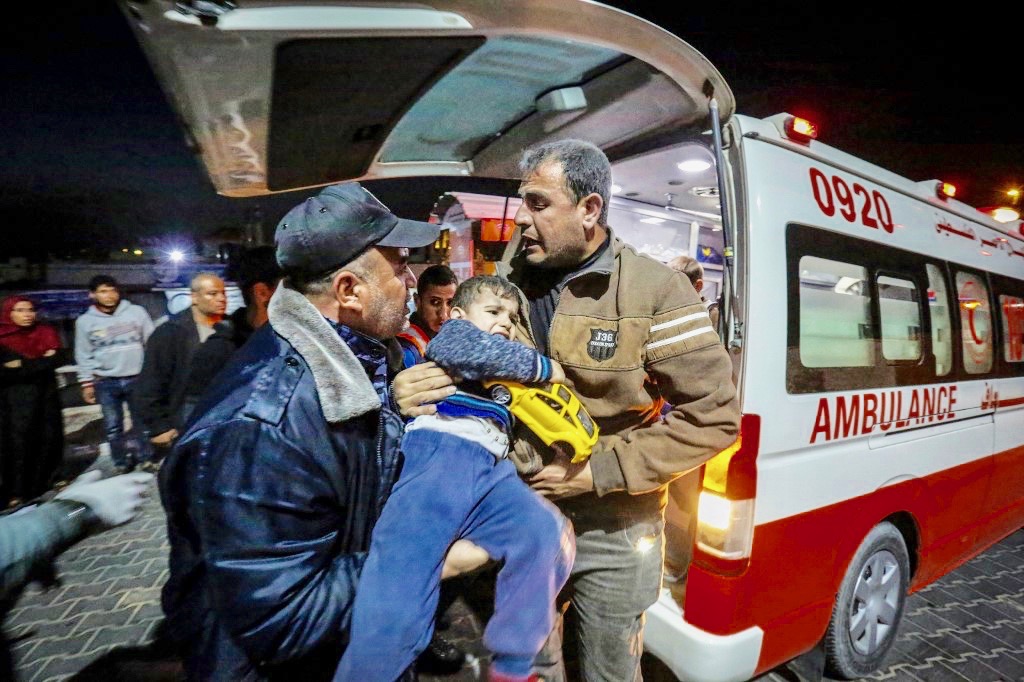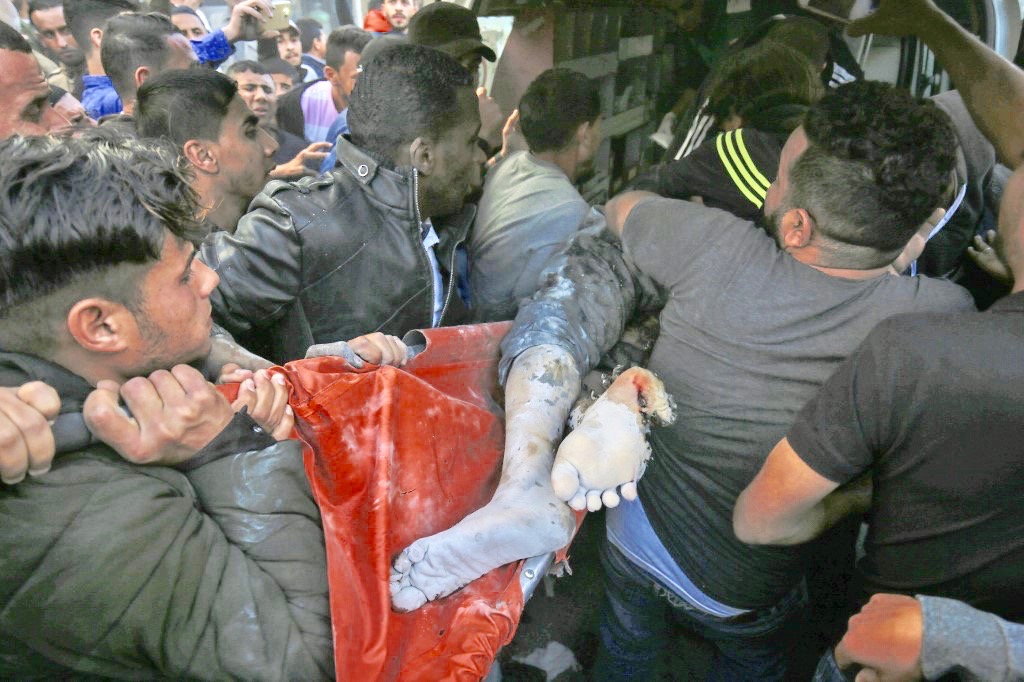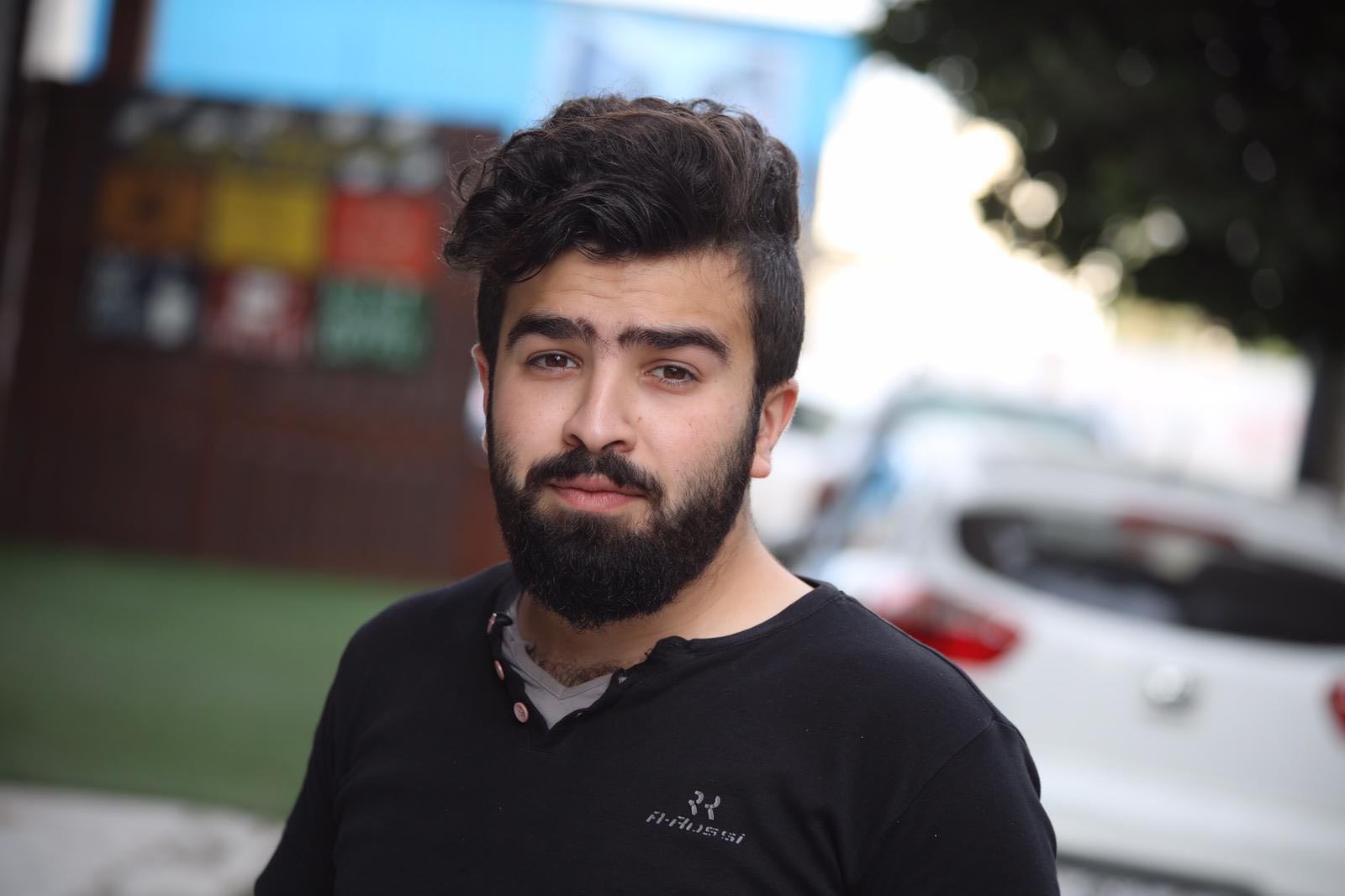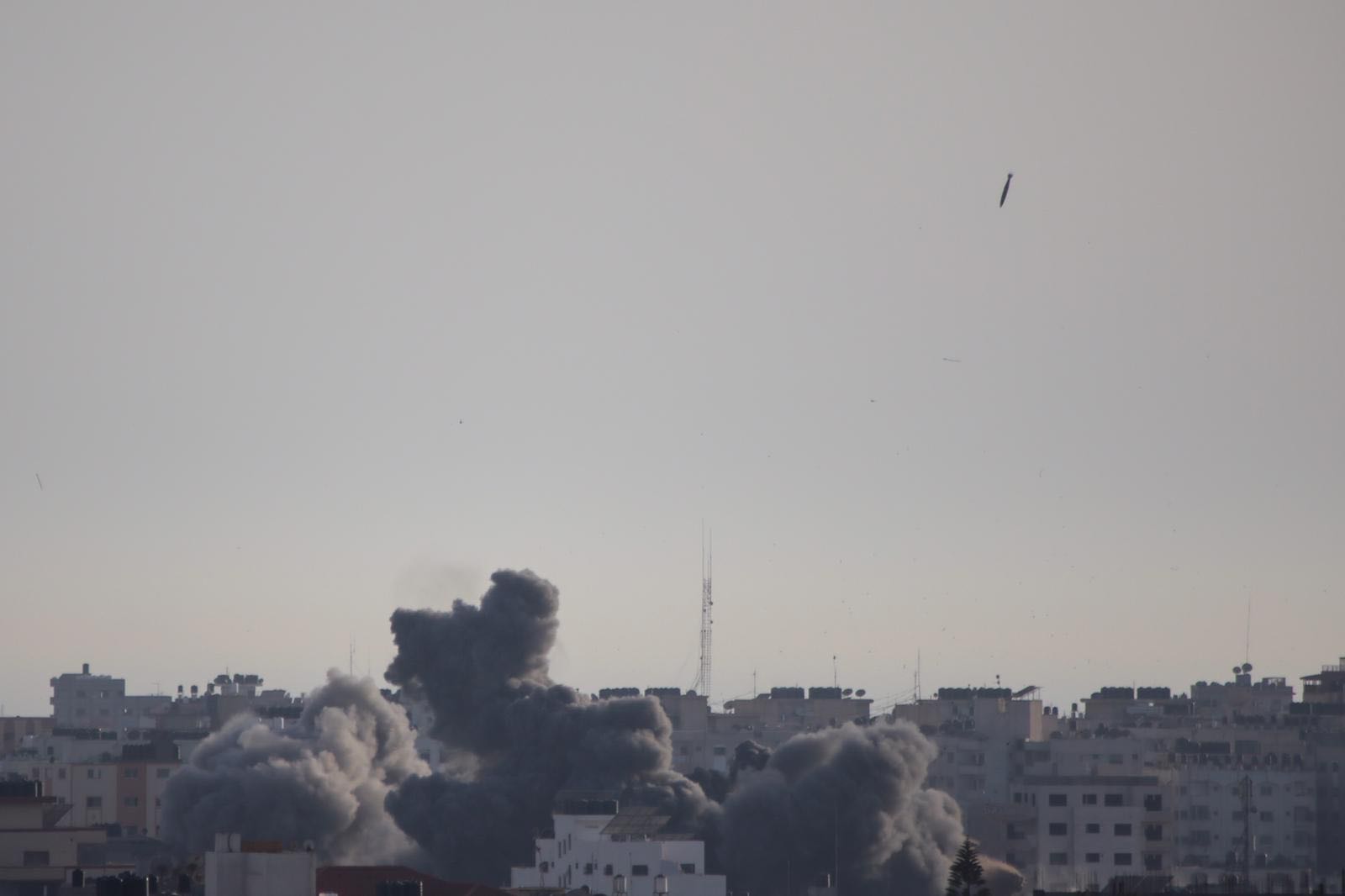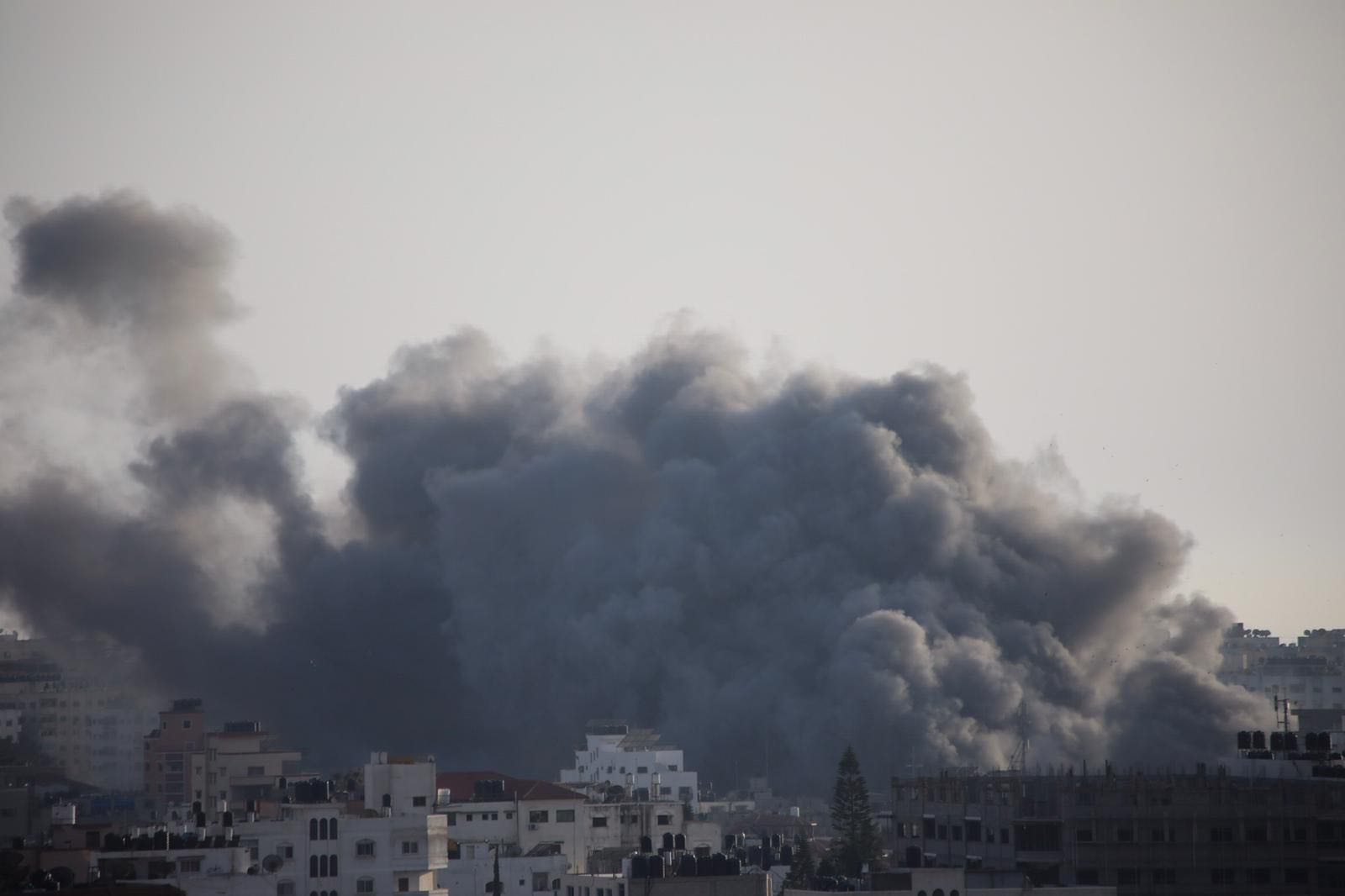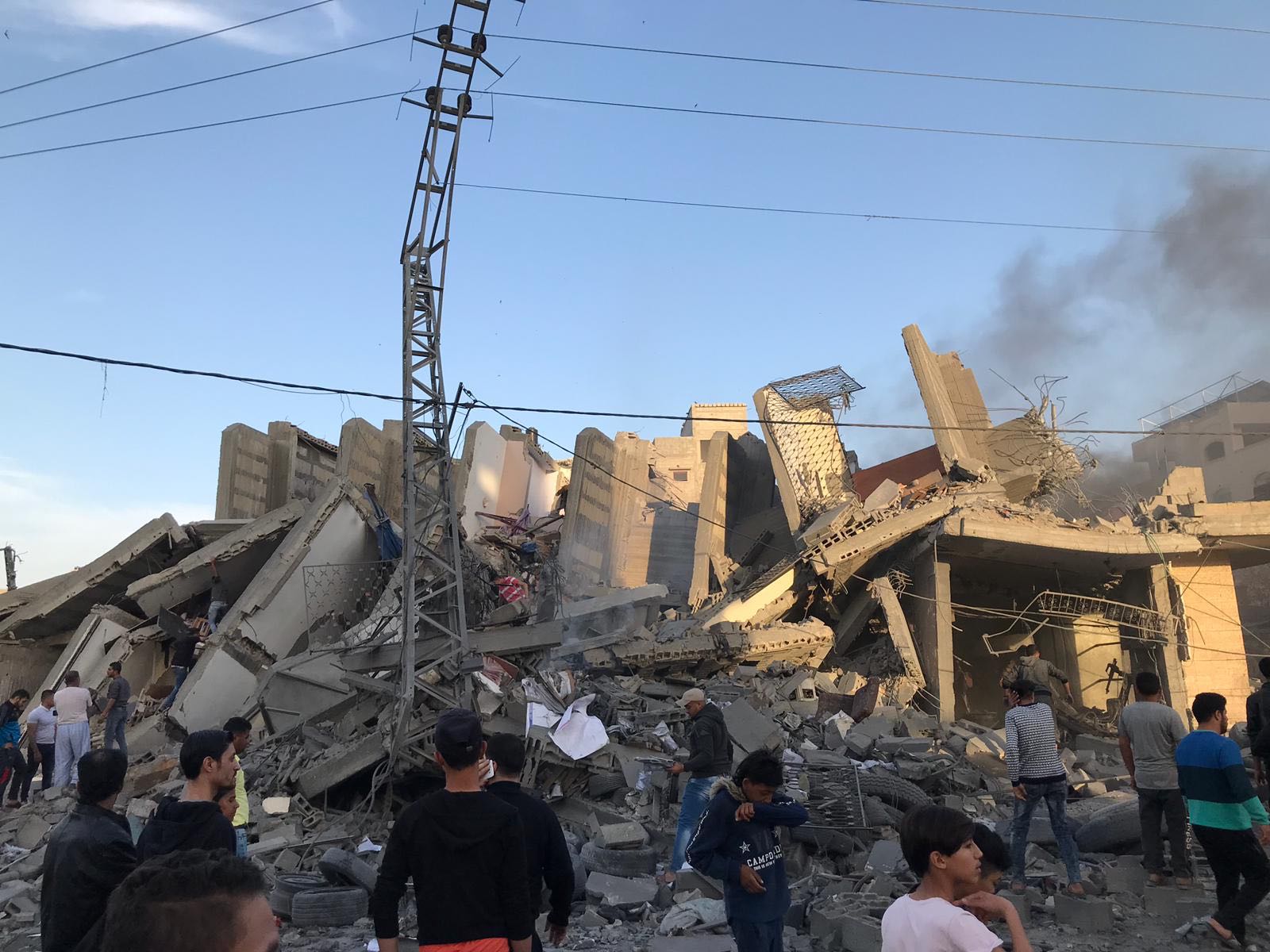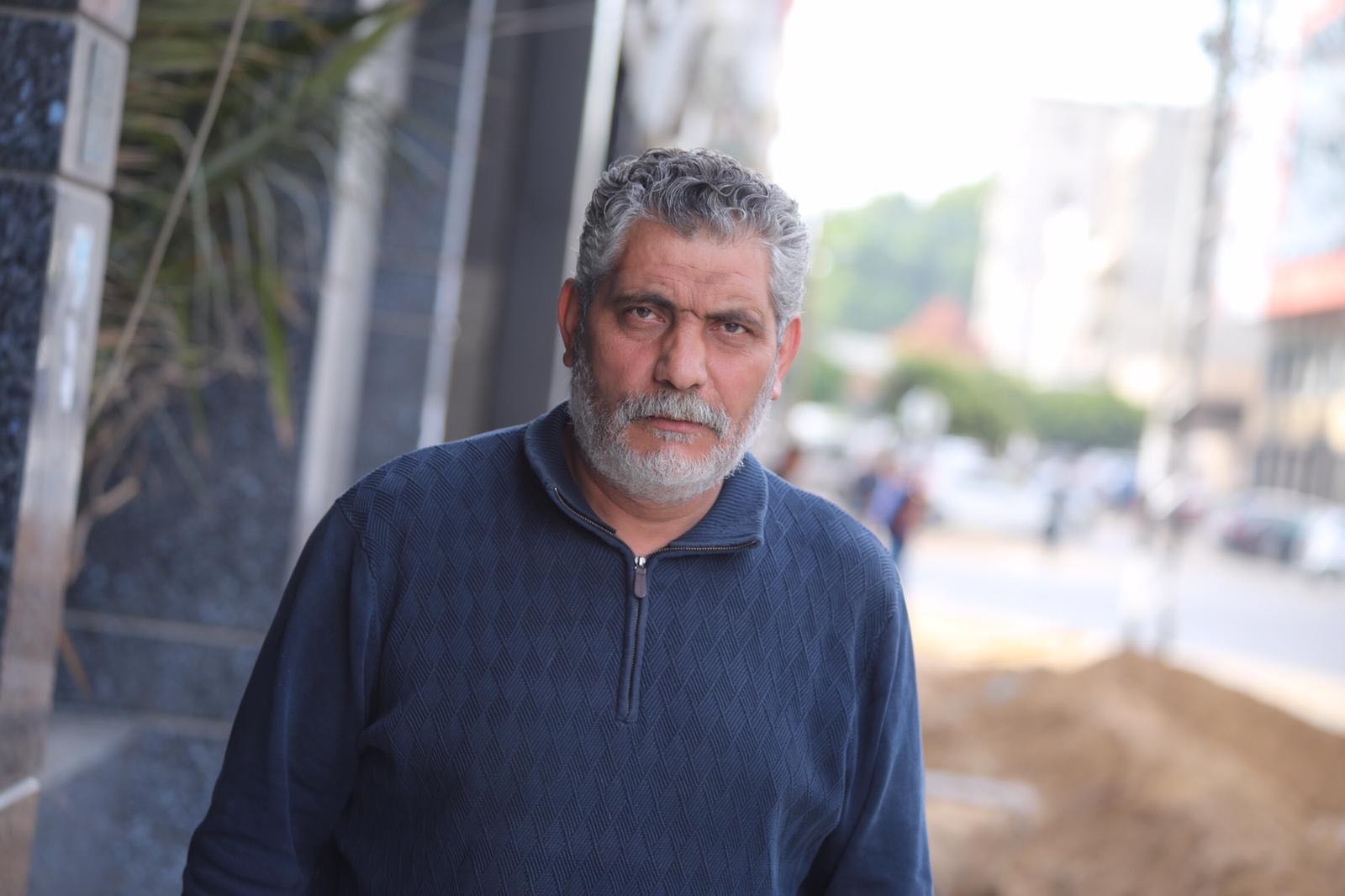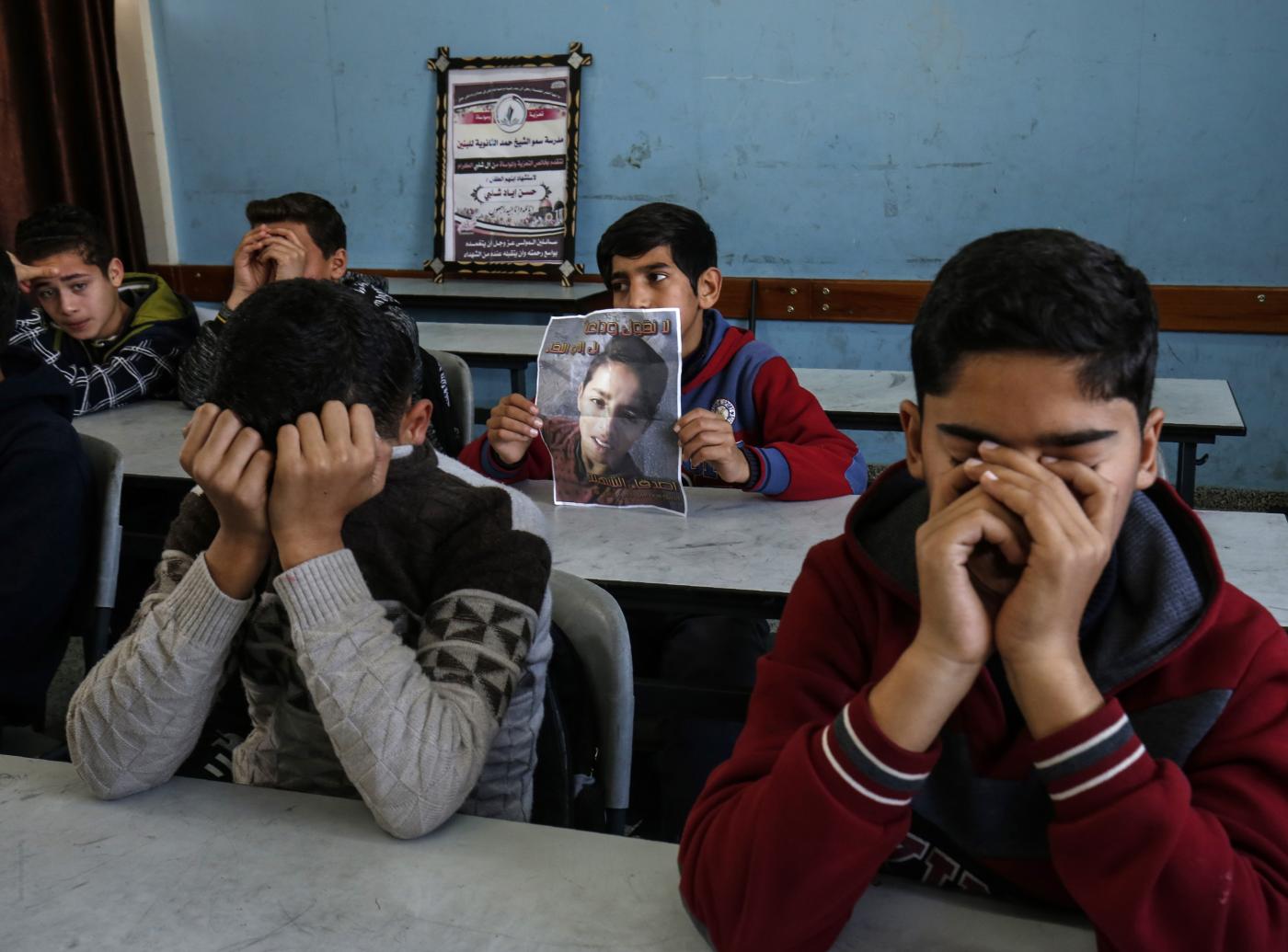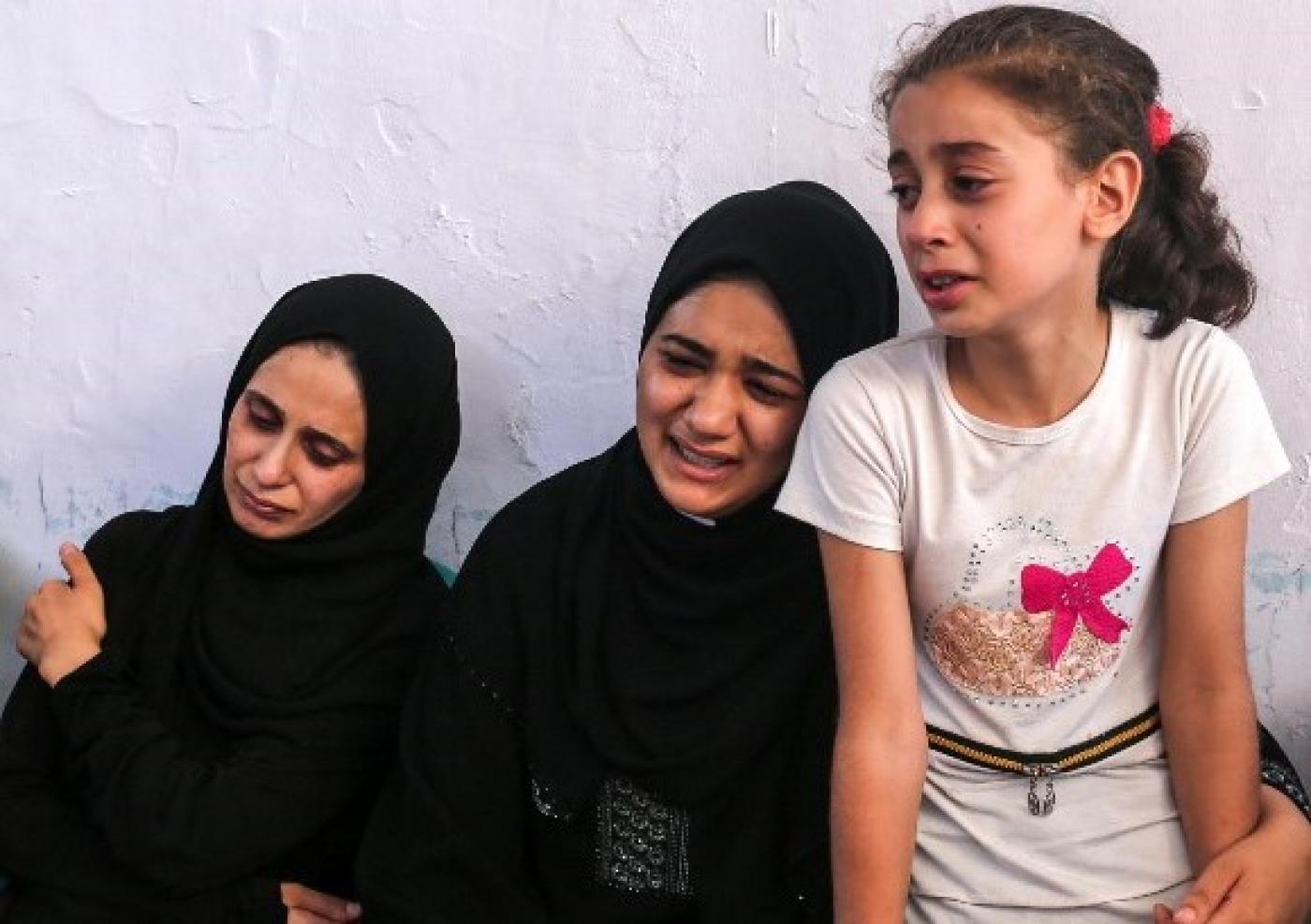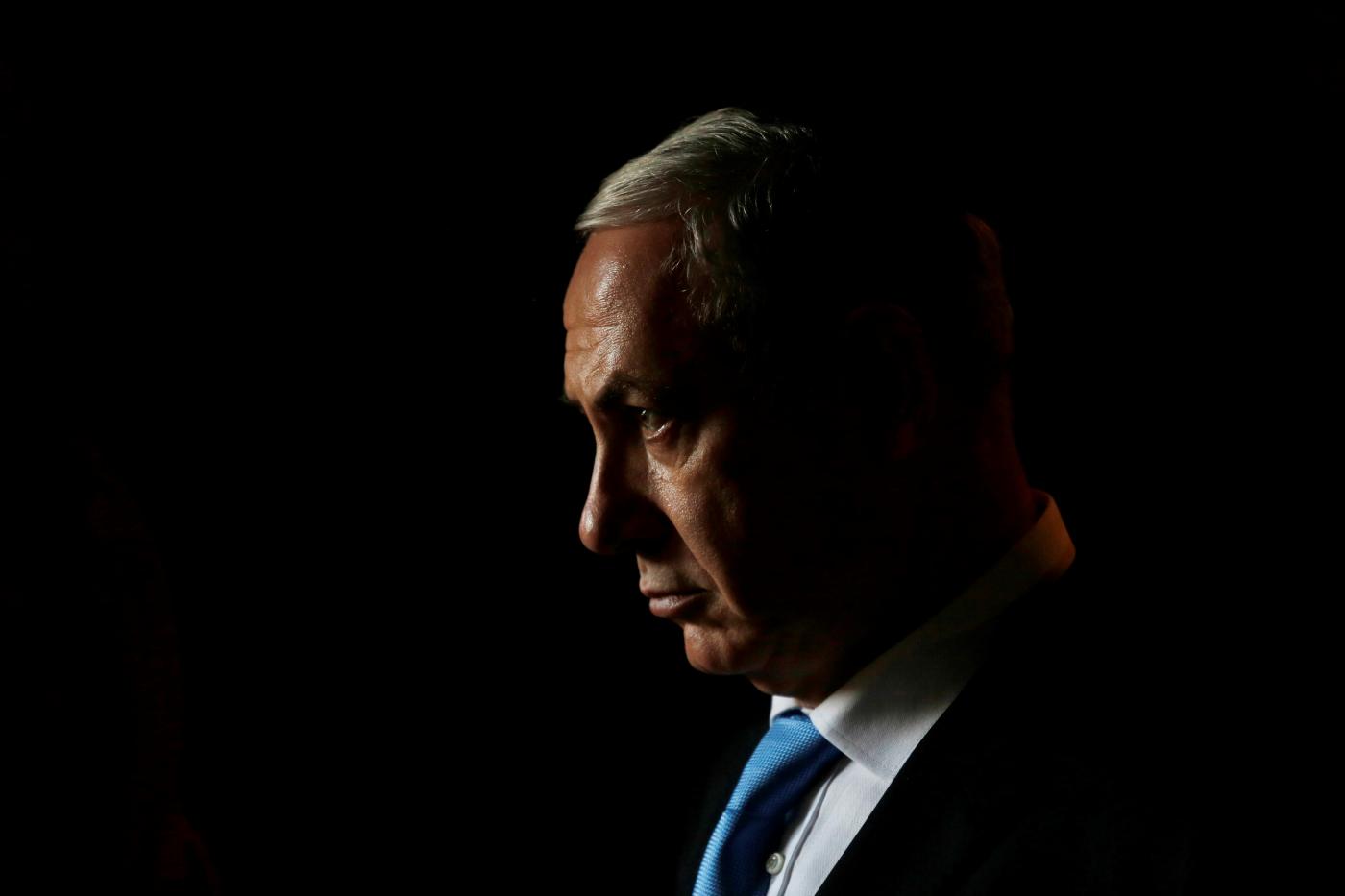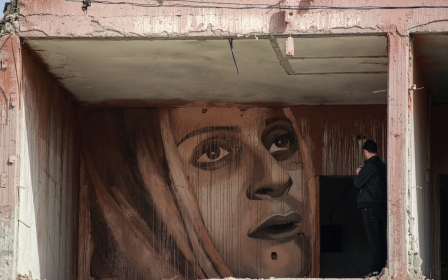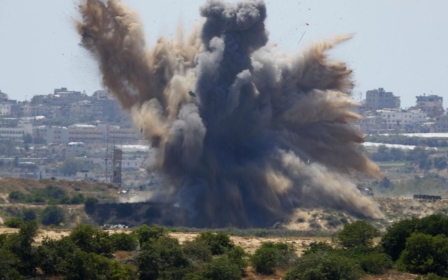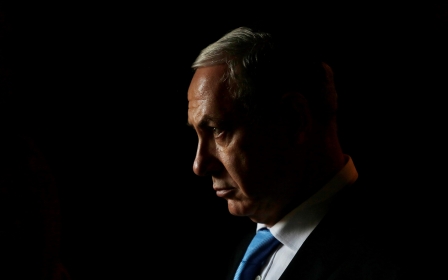Live: Deadly Gaza violence
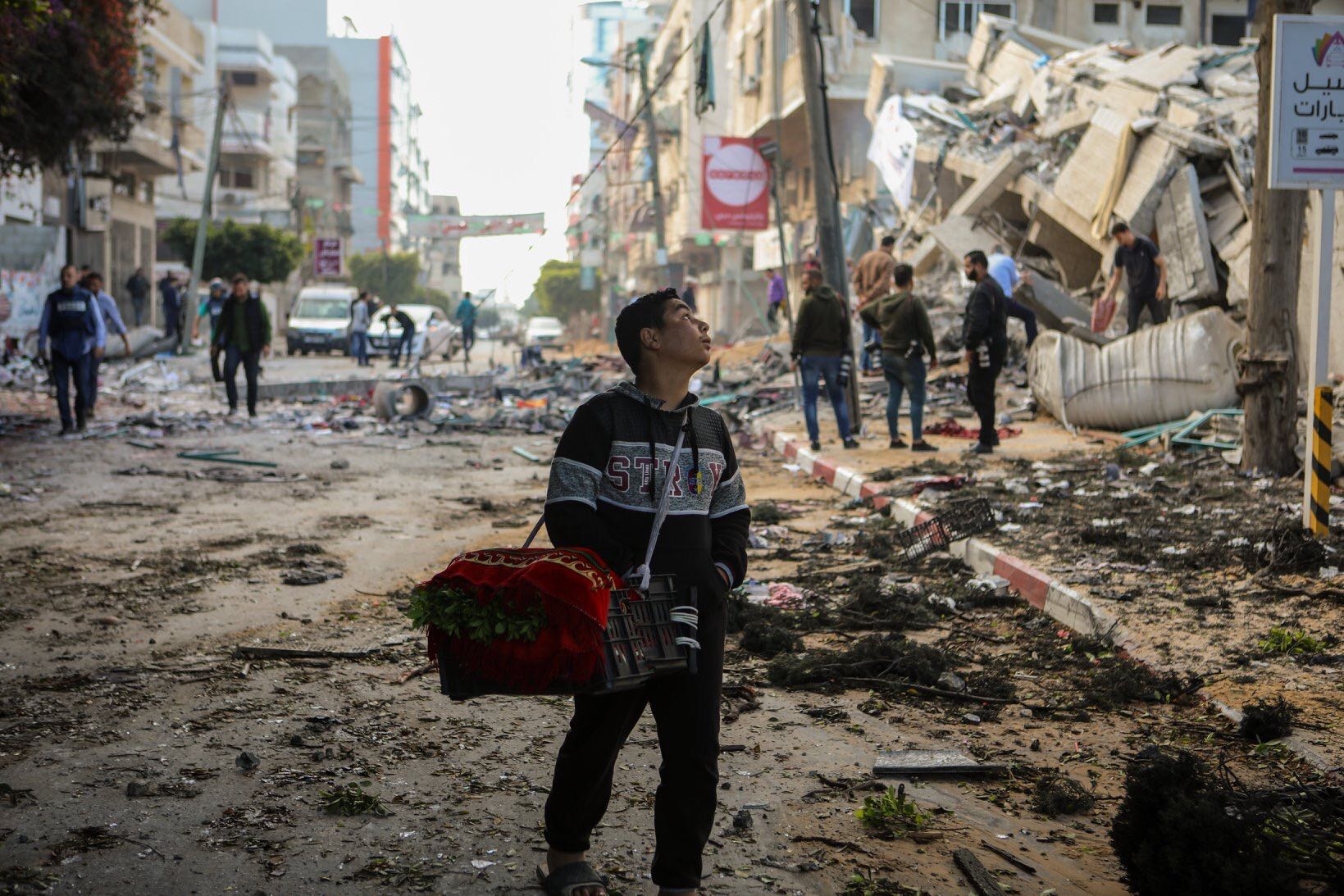
Mises à jour du direct
Though the Israelis haven't confirmed it, it does indeed appear that a ceasefire has been agreed and is holding.
After a weekend of brutal violence, which saw at least 23 Palestinians and four Israelis killed, the skies are calm on Monday.
You can read all about the calm prevailing in Gaza and southern Israel here:
Gaza ceasefire holding following bloody weekend
Ismail Haniya, the political director of Hamas, said late Sunday that Israel bore the responsibility to “calm” the current military conflict between the two, the New York Times reported.
Haniya said “returning to the state of calm is possible and depends on the occupation’s commitment to a complete cease-fire” and on the “immediate start of implementing the understandings” the sides had reached earlier with Egypt’s help after Hamas agreed to restrain protests along its frontier.
Still, he threatened to escalate if Israel did not comply, and more Israeli alerts of incoming rockets soon followed.
Israel said Gazans had launched 600 projectiles in two days, firing hundreds of rockets that had been hidden away in arsenals.
The timing of Israel’s current conflict with Gaza could have been better, the New York Times noted on Sunday.
Israel celebrates Memorial Day and Independence Day this week, and international singers from 41 countries are soon arriving to compete in the Eurovision Song Contest on 14-18 May.
Eurovision 2019 will be the 64th edition and is scheduled to take place in Tel Aviv, Israel, following Israel's victory at the 2018 contest in Lisbon, Portugal, with the song Toy, performed by Netta Barzilai.
Eurovision 2018 was watched by 186 million viewers worldwide.
The United Nations, Qatar and Egypt have offered Israel a proposal for a ceasefire, diplomatic sources told Haaretz late Sunday.
Still, the Israeli army had said that it expected the flare-up to continue into the coming days, as schools were canceled across the south of the country.
A spokesman for the Islamic Jihad faction in Gaza told Haaretz earlier on Sunday that there were no talks or negotiations towards ending the current round of hostilities.
Nineteen Palestinians were killed in the Gaza Strip on Sunday, and four people in Israel, Palestinian and Israeli authorities said.
Gaza’s Health Ministry said among the 19 Palestinians killed were a pregnant woman and a four-month-old baby amid the most serious escalation since a 2014 war. Since Friday, 27 Palestinians have died.
The Israeli military declined to comment, AFP said.
On the Israeli side, four people were killed as Hamas and Islamic Jihad fired barrages of rockets and at least one anti-tank missile from the enclave, Israeli authorities said.
Three of the dead were identified as Israeli citizens, with the nationality of the fourth not revealed.
Rocket fire and Israeli strikes continued into Sunday evening.
Iran's Foreign Ministry denounced what it called Israel's "savage" attack on Gaza, blaming "unlimited US support" for Israel, the semi-official Fars news agency reported.
"Foreign Ministry spokesman Abbas Mousavi said on Sunday that Iran strongly condemned the Zionist regime's savage attack ... which martyred and wounded dozens of Palestinians, including women and children," Fars reported.
"Due to unlimited American support for this regime and the embarrassing silence of some Islamic governments, there is no end to Zionist crimes in the occupied Palestinian territories," Mousavi was quoted by Reuters as saying, referring to the surging cross-border fighting.
The Health Ministry in Gaza reported that there was a third Palestinian killed by an Israeli army drone strike that targeted a residential tower northern Gaza.
For some time, the situation between the Zionist entity and the Gaza Strip has been volatile and tense. This has primarily been due to the failure of the Israelis to implement what was agreed upon between the two sides in the Egyptian brokered negotiations. Each time, the Israelis come up with a different pretext. At one time it is the elections, at another it is the formation of the government and at another it is Netanyahu’s personal crisis. They may even use trivial excuses such as the claim that someone within Gaza damaged the barbed wire or burnt a tyre. The purpose of these excuses has been nothing but to stall and gain more time. It is obvious that they have been evading their commitments. Evidently, many of the points that were agreed upon between the two sides have not been implemented including resolving the electricity problem once and for all, allowing funds in whether for salaries or for social welfare needs and defining the parameters of the fishing zone. The latter has not been determined all this while and whenever something happens they change their mind and close the entire zone not to mention the repeated attacks on fishermen.
All this comes within a general context marred by a state of tension and frustration in the shadow of leaks about the so-called deal of the century. From what has been declared so far, it is now certain that what’s coming is much worse than anything in the past or the present. There would be no Jerusalem, no refugees and no Palestinian state. Furthermore, the West Bank would be annexed. It would be impossible for the Palestinian public in Gaza to ignore any of this. It would be unimaginable for Gazans to be concerned merely with securing some war or some medicines or some electricity while the entire Palestinian issue is being blown away.
Yet, what led to the recent flare up has to do with Israel’s continuing violations. Despite all the efforts made to control the marches and maintain their peacefulness over the past weeks – to which media and international agencies’ reports testify, the Israelis deliberately adopt a policy of shoot to kill Friday after Friday. Israeli snipers aim directly at demonstrators with the intention of killing them. Last Friday, snipers shot dead a young woman in North Gaza and a child in Khan Younis, both received bullets in the head. This inevitably stirred up a reaction. Fire was opened at some Israeli soldiers and the Israelis responded by assassinating a number of field commanders inside Gaza.
The Ministry of Health in Gaza reported on Sunday that a second Palestinian toddler has been killed, this time by an Israeli drone air strike in the northern Gaza Strip.
A 14-month-old girl was also killed by an air strike on Saturday.
Anan, a 20-year old from Gaza City, told Middle East Eye that regardless of whether there was a war or not, young people in the Gaza Strip felt hopeless:
"We have been in this scenraio more than one time. We had hoped that our situation would improve," he said.
He explained that the rockets fired towards Israel were the only means that Palestinian armed groups had to apply pressure on Israel over the more than a decade long siege of the enclave.
"We can't breath in Gaza anymore. As the siege becomes stronger and the economic situation gets worse we don’t feel we have any other choice except to put pressure on Israel this way," he said.
"This siege has been too long for us - as a young Palestinian we are under pressure either way, whether it’s war or not. I find myself supporting this escalation - maybe this will be the only way we can remove the siege, which is the only thing I want."
"All young people are feeling desperate. We have no jobs, no life. Even the university educated ones have no jobs.
An Israeli air strike has levelled the Abu Qamar building, which is residential and was previously destroyed in the 2014 conflict.
The central Gaza City building was hit by six Israeli missiles.
Imad al-Jalameh, a Palestinian resident of al-Shatia refugee camp, is wandering through Gaza City's streets.
"I’m very angry at the Arab countries because they are normalising ties with Israel," he tells MEE. "The Israelis have more courage than before because of normalization."
Jalameh lives near a secret police station, so when the bombing began his children fled worrying that it would be a target.
"But Gaza very crowded and we have no shelters, so wherever missiles fall there are civilians because it’s so crowded here," he says.
The streets are completely empty. "It's like a curfew has been imposed," says Jalameh.
"People were tired before this even started - there was nothing to eat, people are poor, and there is high unemployment. Now this situation has made it even worse," he adds.
"People have nothing to eat, which is especially bad now we're coming into Ramadan."
Three more Palestinians have been killed in Israeli attacks, bringing the total up to 16 since Friday.
Moussa Hussein Muammar, 24, died in an air strike in southern Gaza's Rafah, the health ministry said.
Meanwhile, relatives Mohammed al-Nabi Abu Armaneh, 32, and Mahmoud Samir Abu Armaneh, 27, were killed in shelling on central Gaza's Deir al-Bahah, according to the ministry.
As the situation in Gaza continues to deteriorate, Middle East Eye's columnists have written about the political circumstances that led up to the violence:
'We are more tired than afraid': Finding strength amid darkness in Gaza
by Amani Tawahina
"Gaza today faces two choices: a quick death under the rubble of the occupation’s bombs, or a slow death amid the years-long siege. In this situation, we derive our strength from Allah, and from our beloved family members, true friends, and the warm moments and memories we share with them. They are the ones who make life count."
Israel's siege of Gaza: When does it become a genocide?
by Nada Elia
"We need to do better. The stakes are extremely high. So, let us always, always, denounce the genocidal context of the siege on Gaza, and demand its lifting. And let us name the 'unnecessary' deaths of children for what they constitute, namely, protracted genocide."
Netanyahu's Israel will declare an apartheid state. Will the West do nothing?
by Gideon Levy
"The election came and went with no discernible effect on the blindly automatic support for Israel by European governments and, of course, by the Americans too: unconditional, without reservations, apparently unchanged. Evidently what was is what will be."
The bombings Palestinians in Gaza are suffering under come at a particularly tragic time, as Sunday night sees the beginning of the holy month of Ramadan.
Commonly a time of festivities, lights, and public and private events, today the streets of Gaza are deserted as Palestinians shelter from Israeli air strikes.


